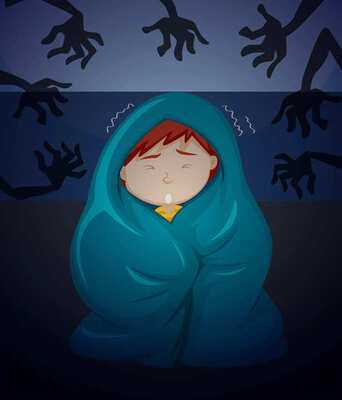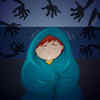
Nightmares vs. Night Terrors: What's the Difference?
A nightmare typically wakes a child up, and they can describe what frightened them. Night terrors, however, occur during deep sleep, leaving kids disoriented, panicked, and sometimes even screaming—but with no memory of the event the next morning.
Signs Your Child Might Be Experiencing Night Terrors

Sits up in bed suddenly, appearing terrified
Screams, cries, or talks incoherently while asleep
Sweating, rapid breathing, or fast heartbeat
Completely unaware of your presence
Falls back asleep as if nothing happened
Why Do Night Terrors Occur?

Night terrors happen because of an overactive nervous system, usually caused by:
Being overtired – Lack of sleep makes them more likely.
Stress or anxiety – Major life changes can cause these episodes.
New sleeping environment – A hotel stay or a new bedroom can disrupt sleep.
Illness or fever – A sick body can lead to restless sleep.
Family history – If a parent had night terrors, the child might too.
How to Handle Night Terrors Like a Pro

Stay Calm: It looks scary, but your child isn't in danger.
Don't Wake Them Up: Let the episode pass naturally.
Make Sleep a Priority: Overtired kids are more prone to night terrors.
Keep a Consistent Routine: Regular bedtime schedules help prevent sleep disturbances.
Limit Screen Time Before Bed: Blue light can disrupt their sleep schedule.
Most children outgrow night terrors. However, in case they do occur frequently or severely, see a doctor for advice. Otherwise, patience and a little bit of bedtime reassurance can make all the difference.

 Sits up in bed suddenly, appearing terrified
Sits up in bed suddenly, appearing terrified
 Night terrors happen because of an overactive nervous system, usually caused by:
Night terrors happen because of an overactive nervous system, usually caused by:
 Stay Calm: It looks scary, but your child isn't in danger.
Stay Calm: It looks scary, but your child isn't in danger.